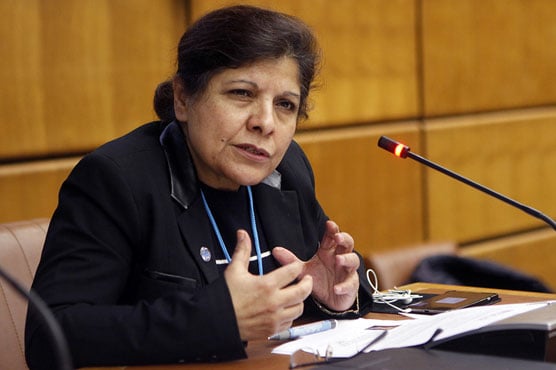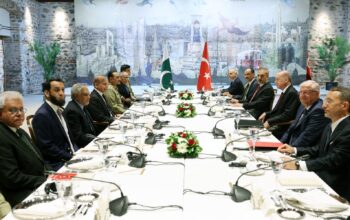By Staff Reporter
ISLAMABAD: Interim Finance Minister Shamshad Akhtar warned on Wednesday that the country’s economic situation was worse than expected and the caretaker government had no room to provide subsidies as it faced rising inflation and public anger over soaring electricity bills.
Akhtar, who took charge earlier this month as part of a caretaker administration that will oversee next general elections, told a Senate committee that the government had inherited an International Monetary Fund (IMF) program that was non-negotiable and required strict adherence.
“The IMF agreement is not something we can change. It is something we have to implement,” she said, adding that the government was engaging with the IMF to seek its approval for some relief measures for electricity consumers.
The finance minister’s remarks came as Pakistan struggled with the high cost of living, especially the exorbitant electricity bills that include various taxes and surcharges and have sparked protests across the country.
The power sector is one of the biggest challenges for Pakistan’s economy, as it suffers from chronic circular debt, inefficiencies, theft, and losses.
The caretaker government has failed to offer any relief measures as it tries to balance between avoiding the IMF’s wrath and appeasing the citizens.
The $3 billion IMF program, which was agreed in July this year, has imposed tough fiscal and monetary conditions on Pakistan, including raising power tariffs, slashing subsidies, hiking interest rates, and letting the rupee currency depreciate.
The caretaker government, in a desperate attempt, has asked the power regulator to approve a six-month plan to increase electricity tariffs by Rs 3.55 per unit, instead of Rs 5.40 per unit for three months, to ease the burden on consumers facing rising costs.
It also proposed that the additional charge should be imposed after September, when an existing quarterly adjustment of Rs 1.24 per unit would expire.
The government is seeking to recover Rs 146 billion in quarterly tariff adjustments (QTA) for April-June 2023 from consumers, as part of its agreement with the IMF to reform the power sector and reduce subsidies.
The QTA is a mechanism to pass on the impact of fuel price variations, power purchase price adjustments, and variations in power purchase mix to consumers.
The government said the QTA was necessary to cover the higher costs of fuel and capacity payments to power producers, but it also acknowledged the need to minimize the price shock on consumers who were already struggling with a 26 percent increase in base national rates notified this year.
The caretaker cabinet, which met on Tuesday under caretaker Prime Minister Anwaarul Haq Kakar, though expressed helplessness on how to address the issue, even on spreading electricity bills in installments unless the IMF approved it.
“The government is considering breaking up the bills into four to six installments, but even that required prior permission from the IMF,” Akhtar said. “The government had limited options and powers as a caretaker setup and could not take any major policy decisions.”
The minister also said the government was mulling over withdrawing some facilities for the privileged class, such as tax exemptions and perks for government officials, but did not give any details.
Akhtar said the next elected government would have to re-engage with independent power producers (IPPs) to renegotiate their contracts and reduce the capacity charges that were adding to the power sector’s losses. “Unfortunately, we have done everything to weaken the economy,” she lamented.”
Copyright © 2021 Independent Pakistan | All rights reserved




